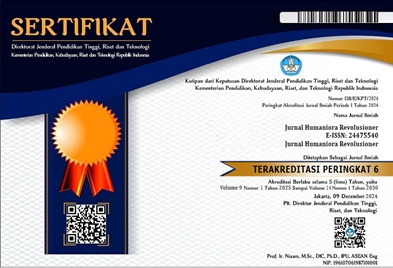RADIASI NON IONIZING OLEH MATAHARI, MANFAAT DAN DAMPAK NEGATIF PADA KEHIDUPAN
Kata Kunci:
Non-Ionizing Radiation, Benefits And Effects, Sun Exposure, The Sun For Health, Benefits Of The Sun For Humans On EarthAbstrak
Non-ionizing radiation emitted by the sun is one of the important aspects in the electromagnetic spectrum that includes ultraviolet (UV) radiation, infrared radiation, as well as radio wave radiation. Although this radiation has significant benefits for life on Earth, especially in supporting the process of photosynthesis and producing vitamin D in human skin, it also has noteworthy negative impacts. One of the main benefits of non-ionizing radiation is its ability to support life through the process of photosynthesis. UV radiation absorbed by plants helps in the formation of chlorophyll, which is necessary for the process of photosynthesis, which in turn becomes the basis of the food chain for life on Earth. In addition, UV radiation is also required by humans for the synthesis of vitamin D, which is important for bone health and the immune system. However, the negative impact of non-ionizing radiation should not be ignored. Excessive exposure to UV rays can cause skin damage, premature aging, and even skin cancer. While infrared radiation can cause global warming and adverse climate change, excessive radio wave radiation can disrupt navigation, communication, and human health systems. Therefore, it is important to understand and manage exposure to non-ionizing radiation wisely. The use of sunscreen, protective clothing, and reduced direct exposure to sunlight can help protect the skin from the negative effects of UV radiation. In addition, proper regulation and protection are needed to reduce the negative impact of radio wave radiation on technology and human health. Thus, while non-ionizing radiation brings important benefits to life, awareness of its negative effects is also important to ensure sustainability and well-being for all living things on Earth.





